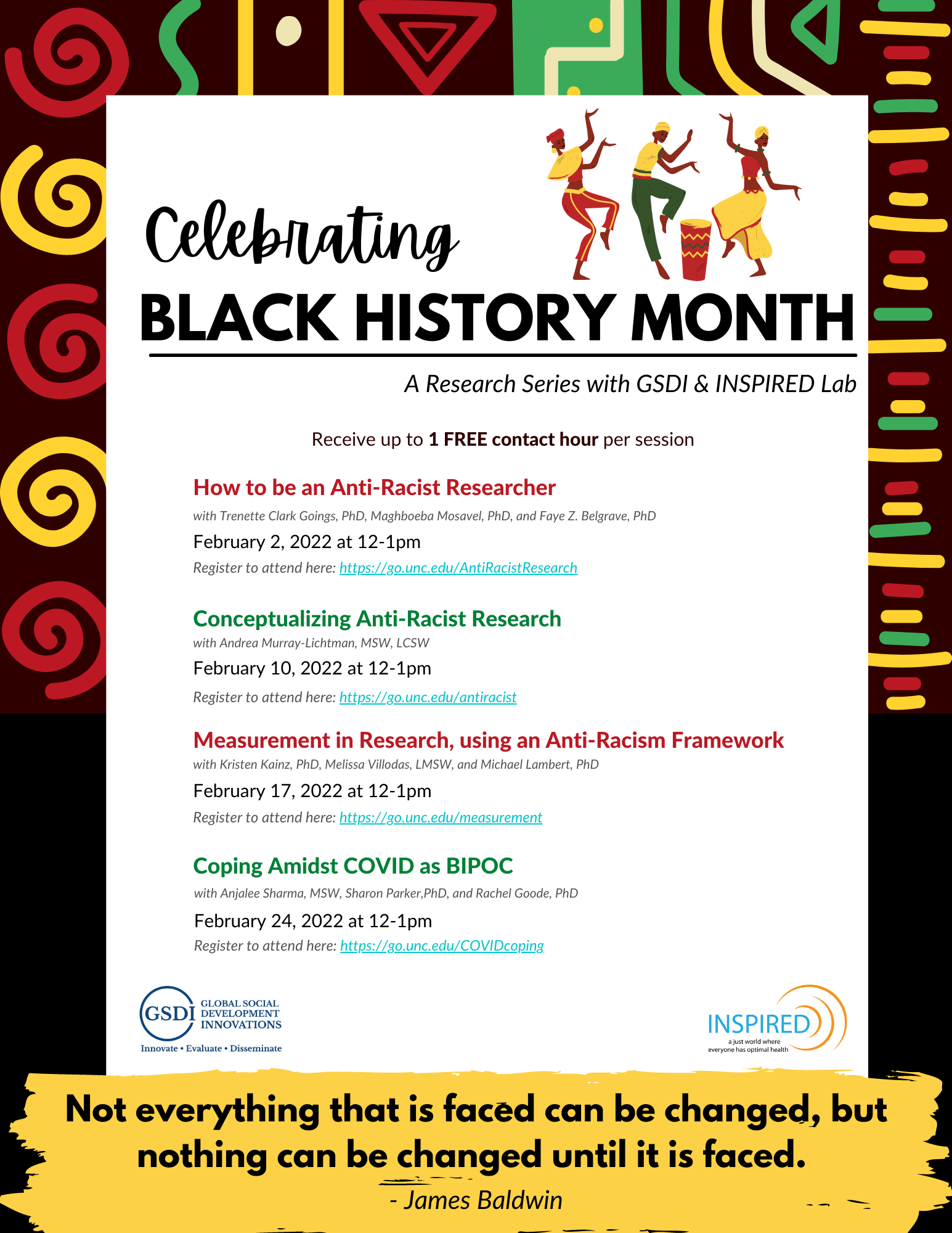Black History Month: Research Series
Virtual Zoom MeetingAnti-racist researchers combat inequality and racism by conceptualizing, implementing, and disseminating research that dismantles racism, oppression, discrimination, and structural inequalities. This presentation offers participants an opportunity to learn how to engage in anti-racist research by presenting a counter-narrative to the traditional conceptualization and implementation of research with Black, Indigenous, and People of Color (BIPOC).

